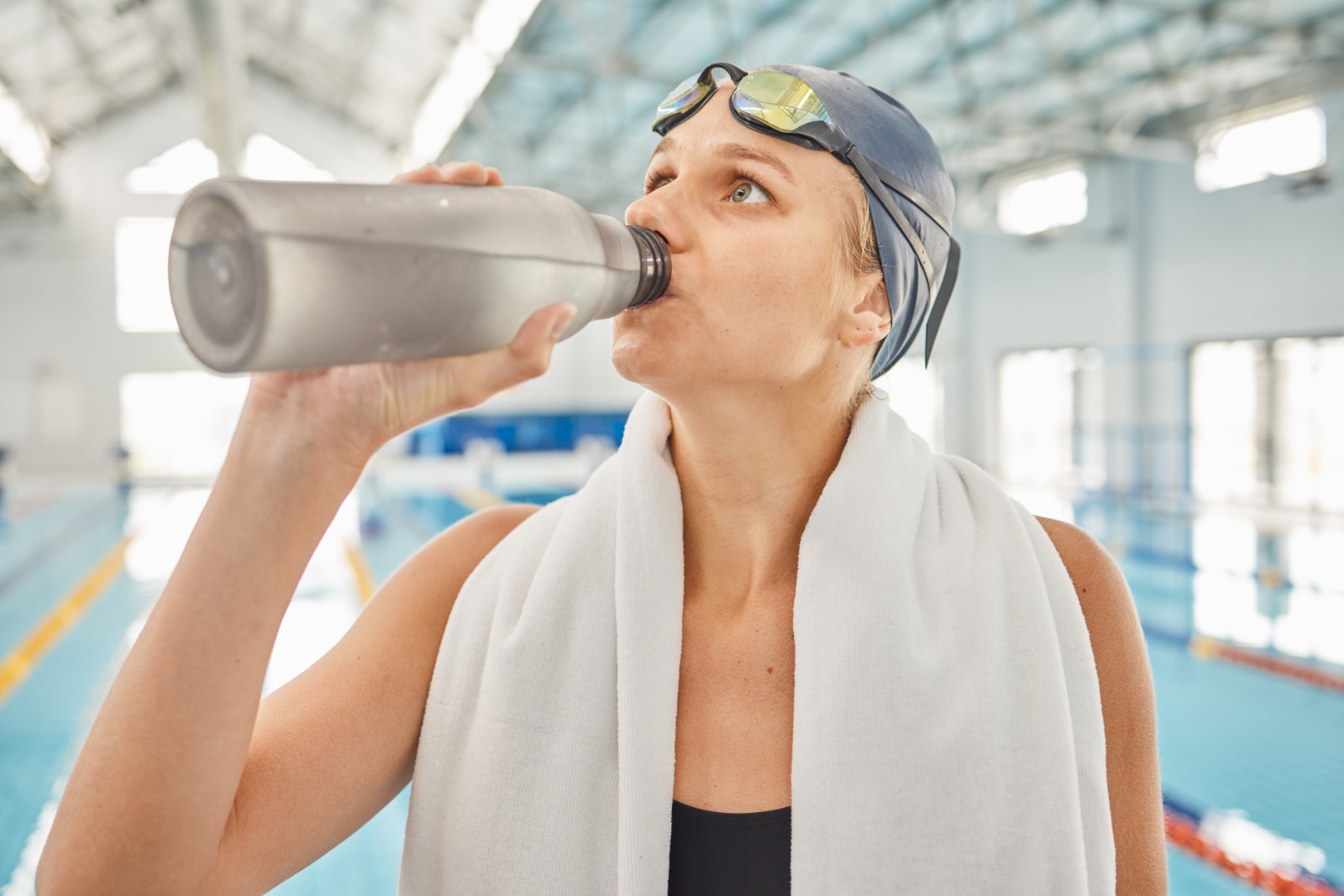
Swimming is not just a sport; it's a comprehensive workout that challenges every part of your body. As you glide through the water, your muscles are hard at work, and your body is expending energy. Just like any other physical activity, staying hydrated during swimming training is not just a good practice; it's a necessity. Here’s why keeping yourself well-hydrated during your swimming sessions is crucial:
1. Regulating Body Temperature:
Swimming is unique because your body is constantly immersed in water. While this keeps you cool, it also means you might not notice how much you're sweating. Dehydration can lead to overheating, especially during intense training sessions. Drinking water helps regulate your body temperature, ensuring you don’t overheat and can perform at your best.
2. Preventing Fatigue:
When you swim, your body loses fluids through sweat. Dehydration can lead to a drop in blood volume, making your heart work harder to pump blood to your muscles. This increased strain can lead to early fatigue, reducing your endurance and overall performance. Drinking water replenishes the lost fluids, keeping your energy levels up and preventing premature exhaustion.
3. Maintaining Electrolyte Balance:
Sweating not only depletes your body of water but also important electrolytes like sodium and potassium. These electrolytes are essential for muscle function and maintaining proper hydration levels within your cells. Drinking water during swimming training helps restore electrolyte balance, ensuring your muscles work efficiently and reducing the risk of cramps.
4. Enhancing Recovery:
After a rigorous swimming session, your body needs to recover. Proper hydration is crucial for this process. When you're well-hydrated, your body can efficiently transport nutrients to muscles and eliminate waste products. This aids in faster recovery, allowing you to get back to the pool sooner and perform better in subsequent sessions.
5. Reducing the Risk of Injuries:
Dehydration can impair your coordination and balance, increasing the risk of accidents and injuries, especially in a slippery environment like a pool area. By staying hydrated, you maintain your focus and sharpness, reducing the likelihood of accidents and helping you practice swimming techniques safely.
6. Optimizing Mental Focus:
Staying hydrated doesn’t just affect your physical performance; it impacts your mental focus too. Proper hydration ensures your brain functions optimally, helping you concentrate on your strokes, techniques, and breathing patterns. This mental clarity is essential for improving your swimming skills and overall performance.
7. Listening to Your Body:
One of the best ways to ensure you're drinking enough water is to listen to your body. Thirst is your body’s way of telling you it needs more fluids. During swimming training, take short breaks to hydrate, even if you don’t feel thirsty. By responding to your body's signals, you can maintain optimal performance levels and prevent dehydration-related issues.
In conclusion, water is not just a companion during your swimming training; it's a vital component that directly influences your performance, endurance, and overall well-being. By staying hydrated, you're not only taking care of your body but also ensuring that you make the most out of your time in the pool. So, the next time you hit the water, don’t forget to bring along your water bottle – your body will thank you for it!
Drop your comment